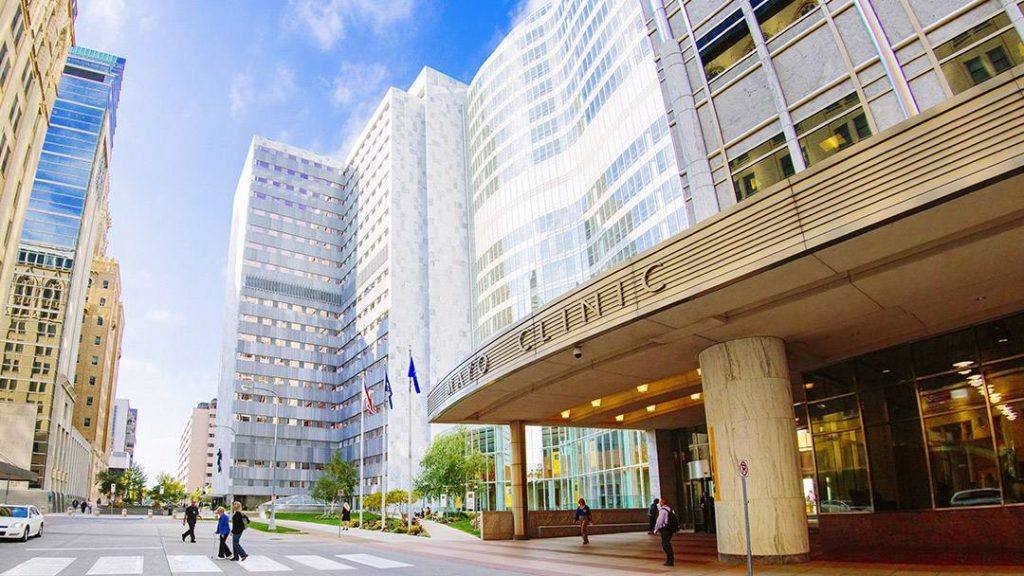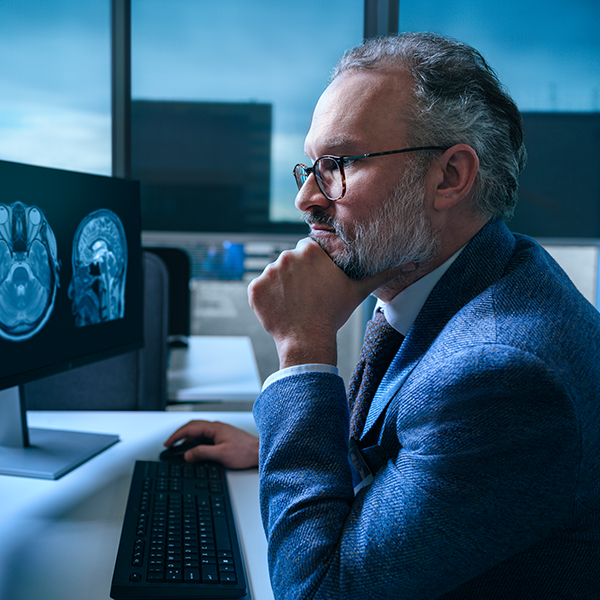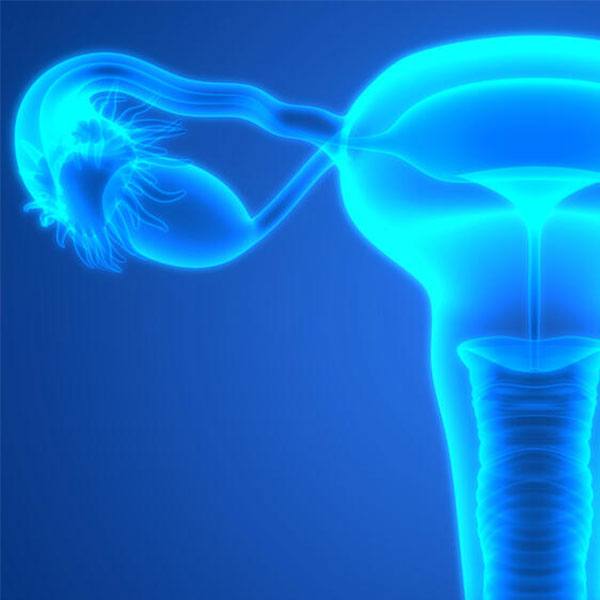-
Mayo Clinic announces 2020 Distinguished Alumni Awards

ROCHESTER, Minn. — Mayo Clinic announces the recipients of its 2020 Distinguished Alumni Awards:
Miguel Cabanela, M.D.
John Cooke, M.D., Ph.D.
David Holmes Jr., M.D.
Edward Laws Jr., M.D.
Robert Rizza, M.D.
Nicholas Talley, M.D., Ph.D.
The award was established in 1981 to acknowledge and show appreciation for exceptional contributions of Mayo Clinic alumni to medicine.
People who have received the award have been recognized nationally and often internationally in their fields. The Distinguished Alumni Award recognizes the outstanding attributes and accomplishments of people who have served at high levels in all aspects of their respective fields.
Miguel Cabanela, M.D.
Dr. Cabanela is an internationally recognized orthopedic surgeon. He is an emeritus professor of orthopedics at Mayo Clinic College of Medicine and Science who retired from practice in 2010. In his 40-year career, Dr. Cabanela was an integral part of Mayo Clinic's Department of Orthopedic Surgery, where he chaired the Division of Adult Reconstruction. He hosted and inspired surgeons from multiple countries and visited their countries — especially Spanish-speaking countries. In 2020, he received the highest honor from the Mexican Hip Society — named one of three “godfathers of hip surgery” in Mexico. He was nominated to the International Committee of the American Academy of Orthopaedic Surgeons and chaired the committee for six years. He was president of the North American Hip Society and International Hip Society. Dr. Cabanela also contributed to teaching surgical techniques in developing countries, including Vietnam, Nicaragua, Guatemala, Ghana and Kenya.
John Cooke, M.D., Ph.D.
Dr. Cooke is an international leader in vascular medicine and biology. He is director of the Center for Cardiovascular Regeneration and chair of the Department of Cardiovascular Sciences at Houston Methodist Research Institute. Dr. Cooke completed a residency in internal medicine, fellowships in cardiovascular medicine and research, and a Ph.D. in physiology at Mayo Clinic in Rochester. After training at Mayo Clinic, Dr. Cooke joined Brigham and Women's Hospital as an assistant professor of Harvard Medical School. Dr. Cooke co-founded the Society for Vascular Medicine and served as president, and co-founded the journal Vascular Medicine and served as associate editor. Dr. Cooke started a program in vascular medicine and biology at Stanford University, and was a professor and associate director of the Stanford Cardiovascular Institute and training director for the National Heart, Lung and Blood Institute-funded program in Vascular Medicine and Biology. From Stanford, Dr. Cooke went to Houston Methodist Research Institute. Dr. Cooke has a distinguished record of generating fundamental insights in endothelial cell biology and vascular diseases, and translating these novel insights toward transformative therapies.
David Holmes Jr., M.D.
Dr. Holmes is a leader and pioneer in interventional cardiology. He is a physician in the Department of Cardiovascular Medicine at Mayo Clinic and a professor of medicine at Mayo Clinic College of Medicine and Science. Dr. Holmes was director of pacing and electrophysiology at Mayo Clinic during a time when the practice was changing due to advances in science. He developed surgical approaches and electrophysiologic mapping techniques for supraventricular arrhythmias, helping Mayo Clinic become a world leader in the field. He was director of Mayo's Cardiac Catheterization Laboratory, developing the largest experience in the world of treating pulmonary vein stenosis as a complication of radiofrequency ablation for atrial fibrillation. He was involved in introducing percutaneous transluminal coronary angioplasty (PTCA) to Mayo Clinic and in establishing a multicenter PTCA registry that has recruited more than 35,000 patients. He has trained two generations of interventional cardiologists, is the named inventor of the Watchman Left Atrial Appendage Occluder device and has made remarkable contributions to scientific literature. Dr. Holmes is past president of the Society for Cardiac Angiography and Interventions and the American College of Cardiology.
Edward Laws Jr., M.D.
Dr. Laws is one of the most recognized names in neurologic surgery in the last century. He is a professor of neurosurgery at Harvard Medical School and Brigham and Women's Hospital in Boston. Dr. Laws was a staff neurosurgeon at Mayo Clinic in Rochester from 1972 to 1987, and a professor at Mayo Clinic College of Medicine and Science. At Mayo Clinic, he focused on pituitary and brain tumor treatment and research, setting the stage for a career as an international leader in the treatment and management of pituitary and other sellar and suprasellar tumors. His papers, ideas and thoughts on these diseases have served as the gold standard for trainees and practitioners over the last several decades. After leaving Mayo Clinic, Dr. Laws became professor and chair of neurosurgery at George Washington University in Washington, D.C.; followed by professor of neurosurgery at the University of Virginia in Charlottesville; professor and vice chair of neurosurgery at Stanford University in California, and professor of neurosurgery at Boston Children's Hospital/Brigham and Women's Hospital/Harvard Medical School, where he established the Pituitary/Neuroendocrine Center.
Dr. Laws has operated on more than 8,000 brain tumors, including 6,000 pituitary tumors and has been president of all major neurosurgical organizations: Congress of Neurological Surgeons, American Association of Neurological Surgeons, World Federation of Neurological Societies, American College of Surgeons, and Pituitary Society.
Robert Rizza, M.D.
Dr. Rizza is a leader in diabetes clinical research and the diabetes community. He is an emeritus professor of medicine at Mayo Clinic College of Medicine and Science. Dr. Rizza has served as chair of the Mayo Clinic Division of Endocrinology, Diabetes, Metabolism and Nutrition, and executive dean for Research. He challenged conventional wisdom about the physiologic basis of Type 2 diabetes and established the rationale for a basal-bolus regimen for the treatment of Type 1 diabetes. This multiple daily injection program is now the standard of care worldwide. Dr. Rizza's participation in the American Diabetes Association, American Association of Clinical Endocrinologists, and Endocrine Society helped bring about important practice guidelines that affected the delivery of care throughout the country. He has served as president of the American Diabetes Association and associate editor for Diabetes and Diabetes Care, and the American Journal of Physiology: Endocrinology and Metabolism. His involvement with these groups and the European Association for the Study of Diabetes has included promoting consensus statements and cooperation in research, and implementing research findings in practice—for the common goal of improving public health.
Nicholas Talley, M.D., Ph.D.
Dr. Talley is one of the foremost leaders in neurogastroenterology and functional gastrointestinal diseases, and one of the most influential clinical researchers in the world. He is pro vice-chancellor of Global Research at the University of Newcastle in Callaghan, Australia. Dr. Talley completed a research fellowship in gastroenterology at Mayo Clinic School of Graduate Medical Education in Rochester. While at Mayo, Dr. Talley began to reshape gastroenterology research, applying an epidemiological approach to common diseases in gastroenterology. He performed novel treatment trials, established a new phenotype of dyspepsia, and led the development of consensus criteria for the diagnosis of functional GI disorders and development of novel avenues of research into the pathobiology of functional dyspepsia. He has written or co-written almost all of the important practice guidelines on dyspepsia and functional GI disorders, and devised and evaluated scoring systems for functional GI disorders. His contributions have had a profound affect on clinical practice and informed understanding of the characteristics, natural history, evaluation and management of these extremely common disorders.
Dr. Talley chaired the Department of Internal Medicine at Mayo Clinic in Florida until he went to the University of Newcastle. Most recently, his focus has been on establishing a new phenotype of dyspepsia marked by duodenal eosinophilia. In 2017, he was named Australia's most cited academic by Google Scholar. He served as the co-editor-in-chief for the American Journal of Gastroenterology and Alimentary Pharmacology & Therapeutics and Medical Journal of Australia (currently).
###
About Mayo Clinic
Mayo Clinic is a nonprofit organization committed to innovation in clinical practice, education and research, and providing compassion, expertise and answers to everyone who needs healing. Visit the Mayo Clinic News Network for additional Mayo Clinic news and Mayo Clinic Facts for more information about Mayo.
Media contact:
- Kelley Luckstein, Mayo Clinic Public Affairs, newsbureau@mayo.edu







